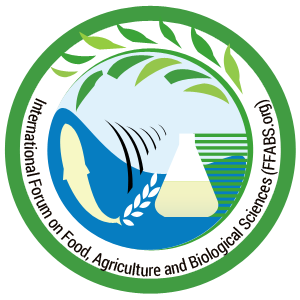Call for papers/Topics
Topics of interest for submission include any topics on Waste Management, Bioenergy and Biofuels:
I. Waste Management:
- Sustainable Waste Collection and Sorting:
- Advanced sorting technologies (AI, robotics).
- Optimized collection logistics and systems.
- Community-based waste management initiatives.
- Extended producer responsibility (EPR) schemes.
- Waste-to-Energy (WtE) Technologies:
- Incineration with energy recovery.
- Anaerobic digestion of organic waste.
- Gasification and pyrolysis of solid waste.
- Plasma gasification.
- Advanced thermal treatment processes.
- Waste Recycling and Resource Recovery:
- Chemical recycling of plastics.
- Recovery of critical raw materials from e-waste.
- Construction and demolition waste recycling.
- Textile waste recycling and upcycling.
- Composting and vermicomposting.
- Landfill Management and Remediation:
- Landfill gas capture and utilization.
- Leachate treatment and management.
- Landfill mining and reclamation.
- Reducing landfill waste.
- Hazardous Waste Management:
- Safe handling and disposal of industrial waste.
- Medical waste management.
- Radioactive waste management.
- Pollution control and remediation.
- Circular Economy and Zero Waste:
- Designing for recyclability and durability.
- Reducing single-use plastics and packaging.
- Implementing circular business models.
- Zero waste cities and communities.
II. Bioenergy and Biofuels:
- Biomass Resources and Feedstock:
- Agricultural residues and forestry waste.
- Energy crops and dedicated biomass plantations.
- Algae-based biomass production.
- Municipal solid waste as feedstock.
- Sustainable feedstock sourcing.
- Biofuel Production Technologies:
- First-generation biofuels (ethanol, biodiesel).
- Second-generation biofuels (cellulosic ethanol, advanced biodiesel).
- Third-generation biofuels (algal biofuels).
- Biogas and biomethane production.
- Biofuel upgrading and refining.
- Biopower and Bioheat:
- Biomass combustion and co-firing.
- Combined heat and power (CHP) from biomass.
- Biomass gasification for power generation.
- Advanced bioenergy systems.
- Biorefineries and Bioproducts:
- Integrated biorefineries for multiple products.
- Production of biochemicals and biomaterials.
- Sustainable aviation fuels (SAF).
- Bio-based polymers and plastics.
- Bioenergy and Biofuel Sustainability:
- Life cycle assessment (LCA) of bioenergy systems.
- Land use change and biodiversity impacts.
- Carbon footprint reduction.
- Social and economic sustainability of bioenergy.
- Advances in Bioenergy Technology:
- Synthetic biology for biofuel production.
- Enzyme engineering for biomass conversion.
- Advances in anaerobic digestion.
III. Integration and Policy:
- Policy and Regulatory Frameworks:
- Incentives and subsidies for bioenergy and waste management.
- Carbon pricing and emissions trading.
- Waste management regulations and standards.
- Sustainable energy policies.
- Economic Analysis and Market Development:
- Cost-benefit analysis of bioenergy and waste management.
- Market potential for biofuels and bioenergy.
- Financing and investment in sustainable projects.
- Social and Environmental Impacts:
- Public perception and acceptance of bioenergy and waste management.
- Environmental justice and equity considerations.
- Health and safety aspects.
- Integration of Waste Management and Bioenergy:
- Creating closed loop systems.
- The role of the bioeconomy.
- Urban waste to biofuel strategies.
- Technological innovations for a greener future:
- The role of AI in waste management and bioenergy.
- The use of nanotechnology.










